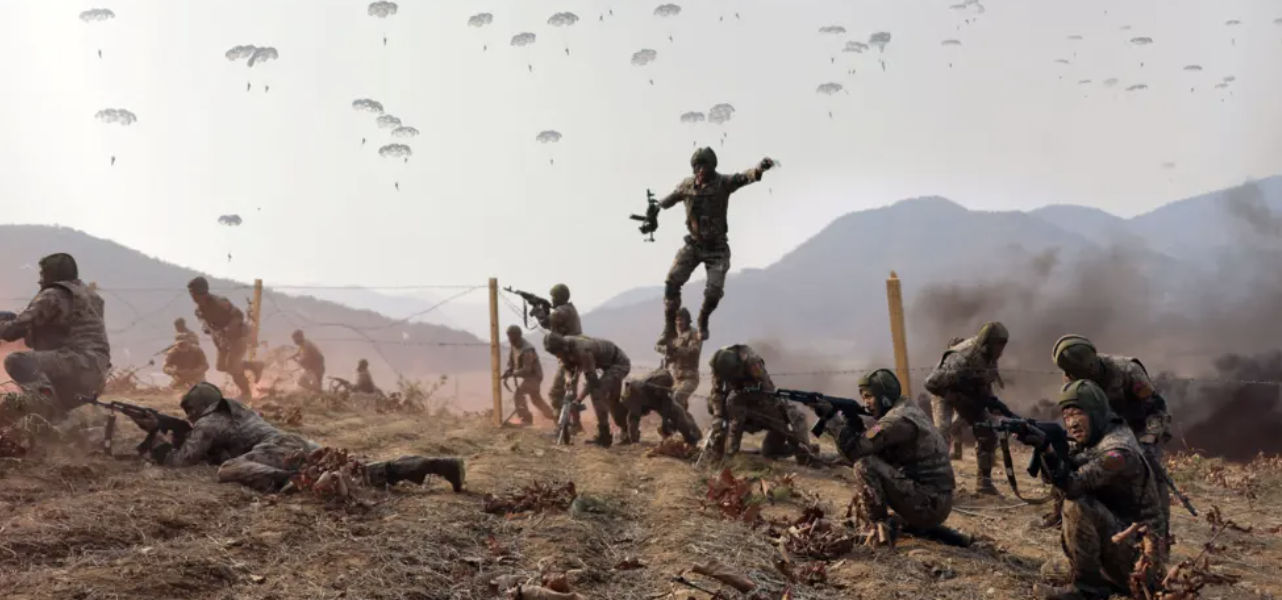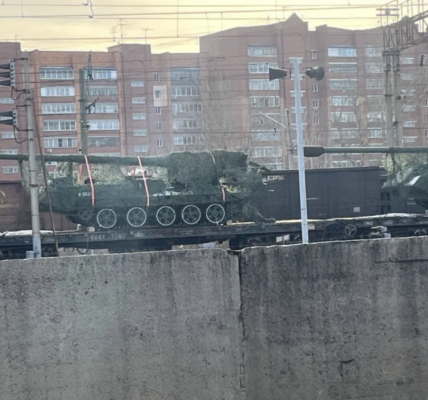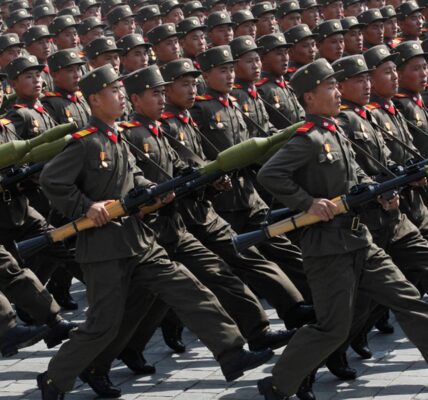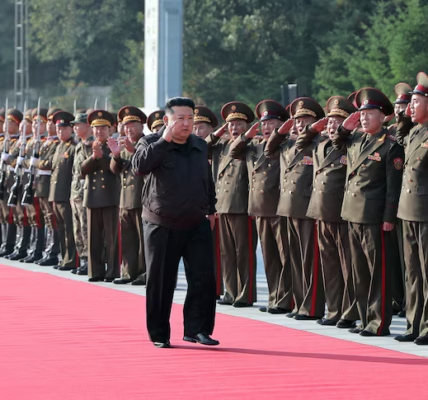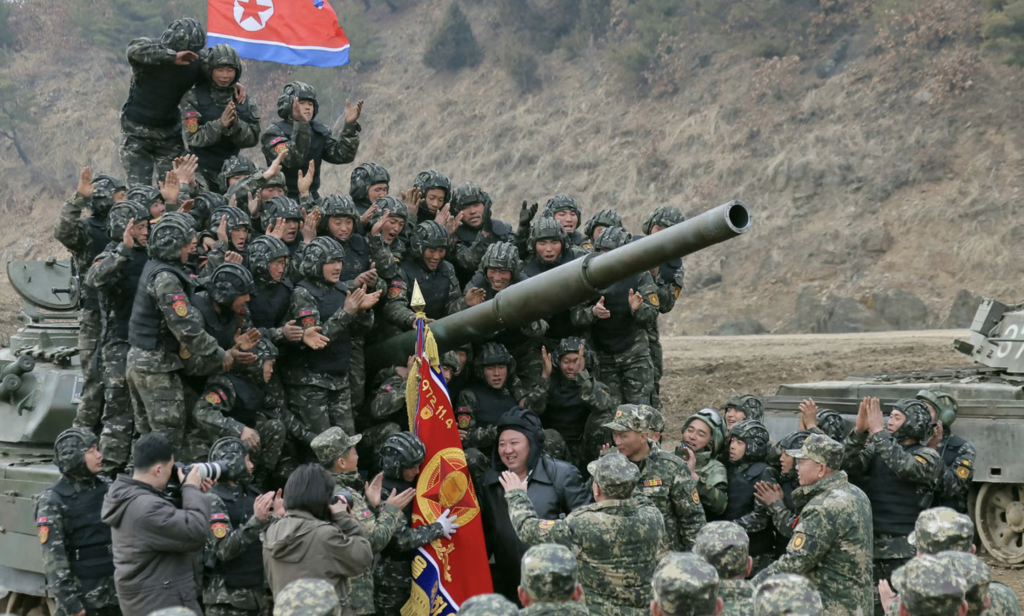
Korean Central News Agency/Korea News Service).
North Korean troops fighting in Ukraine have been warned by their commanders that their families will be executed if they are captured alive.
Details of the threats were revealed by a former North Korean soldier who defected to South Korea after serving in the communist state’s armed forces.

“If the soldiers are captured and tell information to the enemy, their families will be punished, go to a political prison camp, or worse—they will be executed in front of the people,” North Korean defector and researcher Pak Yusung said.

Ryu Seong-hyeon, who defected to South Korea in 2019, said the threats meant that, in reality, very few North Korean soldiers had been captured as a result.
“Most soldiers will kill themselves before they’re killed by the enemy. It’s the biggest shame to be captured,” Mr. Seong-hyeon told ABC News.
South Korean intelligence echoed this, claiming that North Korea ordered troops to kill themselves to avoid being captured alive.
In early February, Ukrainian and American officials said North Korean troops were pulled from the frontline due to losses, but just days later, South Korea’s spy agency claimed additional troops were sent to Russia’s Kursk region.
Ukrainian forces captured the first two North Korean soldiers to be taken alive by Ukraine, President Volodymyr Zelenskyy said in January.

According to South Korean intelligence, the pair were part of North Korea’s intelligence bureau.
One of the soldiers reportedly said he wanted to stay in Ukraine when asked if he wanted to go home in a roughly three-minute video released by Kyiv after the capture.
The Korean translator also asked, “Did you know you were fighting in a war against Ukraine?” to which the soldier shook his head.
Meanwhile, the British Ministry of Defence has revealed that over 5,000 North Korean soldiers are likely to have been killed or injured in Russia’s war against Ukraine.
The figure accounts for as much as one-third—or nearly half—of the total North Korean deployment, pointing to North Korean forces suffering heavy losses on the front lines.
“As of March 2025, Democratic People’s Republic of Korea (DPRK) forces had highly likely sustained over 5,000 casualties in offensive combat operations against Ukrainian forces in the Russian oblast of Kursk,” the ministry wrote in an intelligence update posted on March 28 via social media platform X.
The MoD further estimated that “approximately a third of the casualties” were killed in action.
South Korean military and intelligence officials believe North Korea initially sent around 11,000 troops to Russia last year and dispatched an additional 3,000 between January and February this year.
The South Korean Joint Chiefs of Staff confirmed on March 27 an approximate 4,000 North Korean casualties, with Britain’s updated estimate suggesting the real number could be higher.
The high casualty rate reflects the role North Korean troops are playing on the battlefield—leading high-risk, front-line assault operations.
Ukrainian Senior Sergeant Petro Haidashchuk said in a local media interview in January that North Korean forces were tasked with spearheading assault operations, while Russian soldiers followed behind and secured the areas they seized, citing what Russian prisoners of war reported.
The methods have reportedly left North Korean troops vulnerable to Ukrainian artillery and drone strikes, leading them to be widely described as “meat grinder” tactics.
South Korean lawmaker Yoo Yong-won of the People Power Party, who recently visited Ukraine, said that North Korean troops were being used as cannon fodder, displaying a kind of blind, unthinking combat aggression.
“Ukrainian officials told me they can’t understand why North Korean troops are attempting such aggressive breakthroughs despite the high number of casualties,” Yoo said. “They asked, ‘Why are they so desperate?’”
Analysts say these high-risk North Korean operations are likely to continue.
Russian President Vladimir Putin has shown no signs of backing down on territorial concessions in ongoing ceasefire talks.

The Kursk region, where Ukrainian forces launched a surprise incursion in Russia’s southwest, is particularly important for the Kremlin, as regaining as much lost ground as possible would strengthen Russia’s hand in negotiations—making Pyongyang’s involvement all the more critical for Putin.
While taking heavy losses on the ground, North Korea is also reportedly expanding its reach in space warfare.
US Secretary of the Air Force nominee Troy Meink told the Senate Armed Services Committee that North Korea has “already demonstrated the ability to jam satellite communications and GPS.”
In his written testimony submitted last Thursday, Meink warned that both North Korea and Iran are developing independent space programs.
While they may not rival those of great powers, he noted that they will be able to “exploit the domain to their own ends” and potentially “employ counterspace technologies” against the United States.

